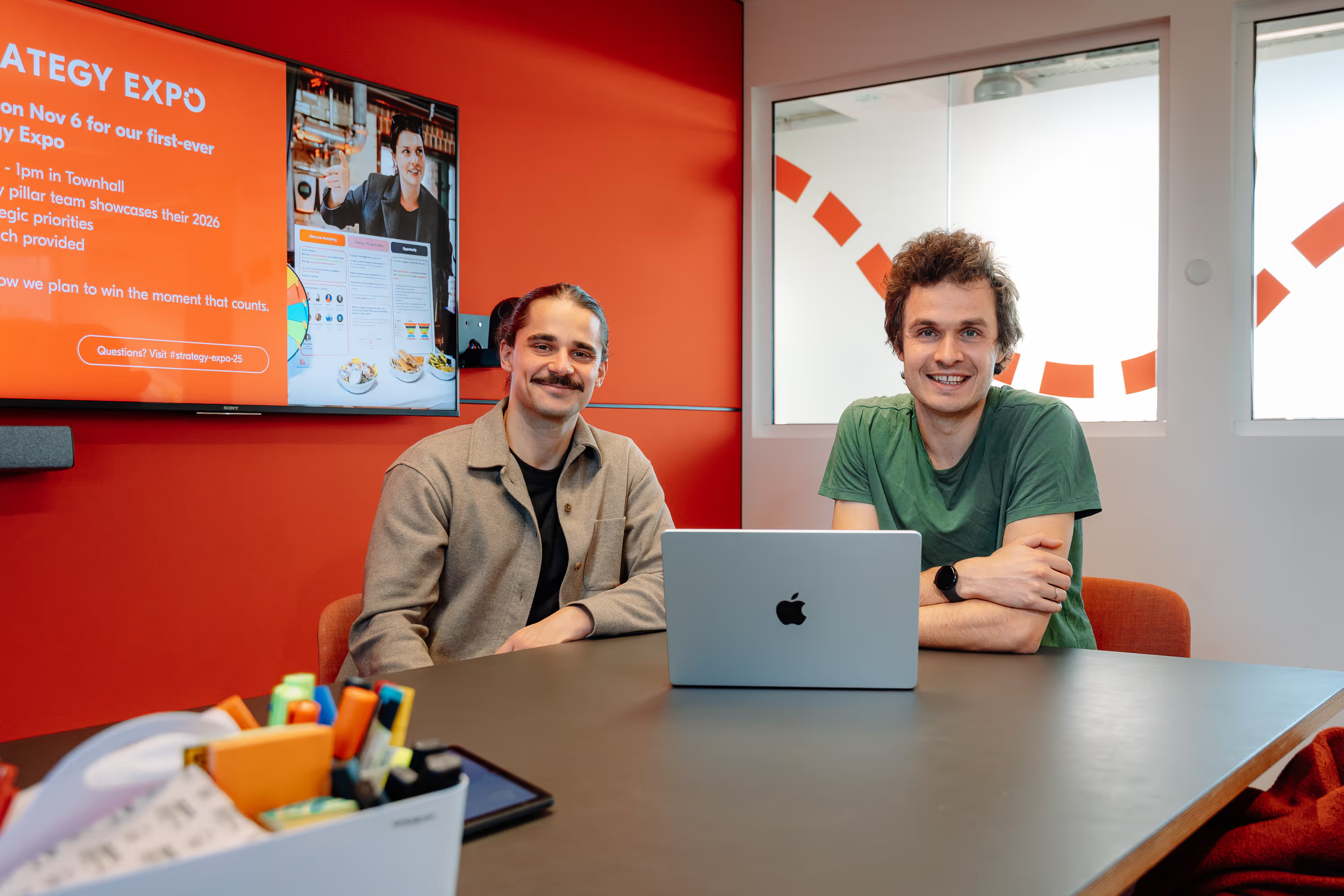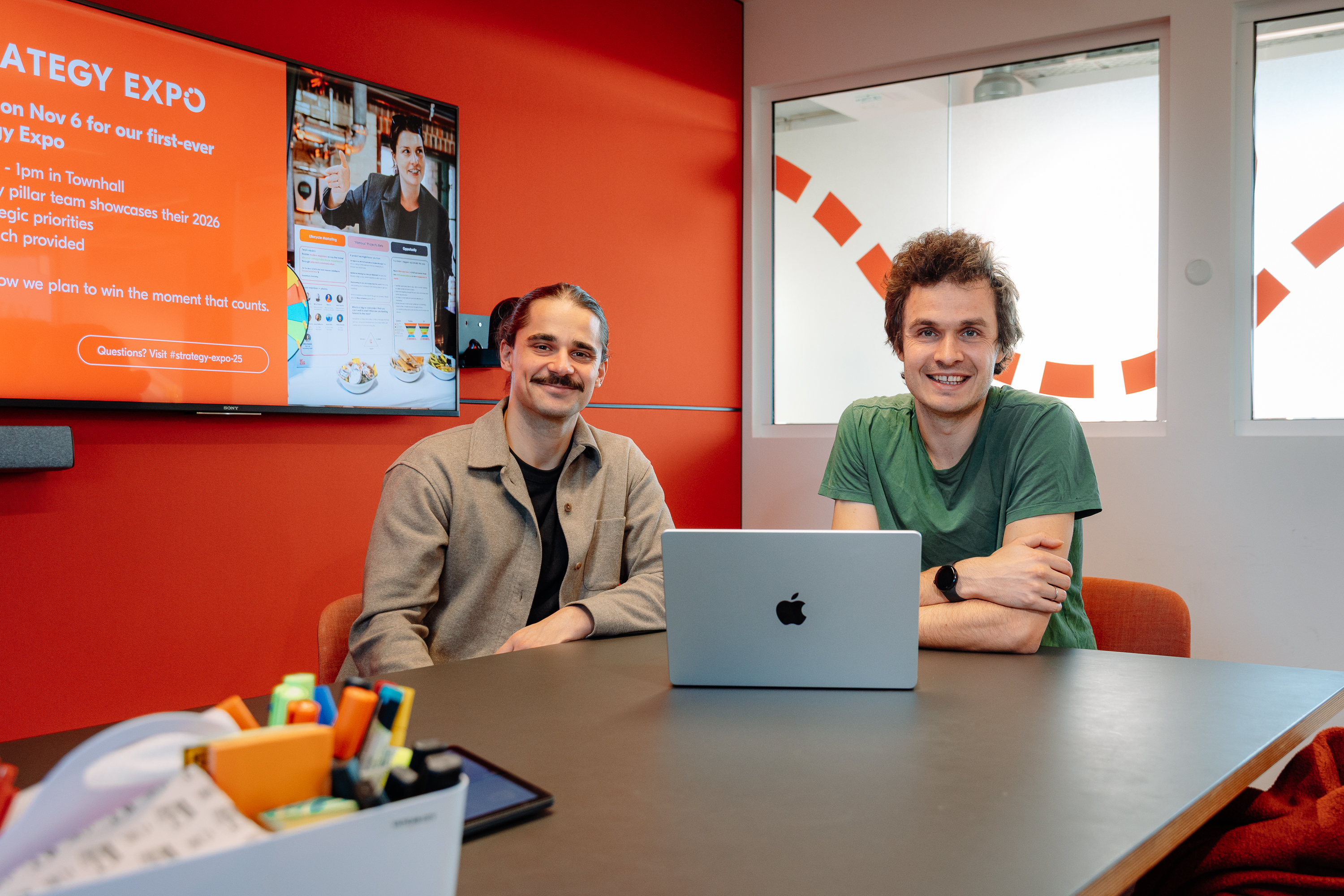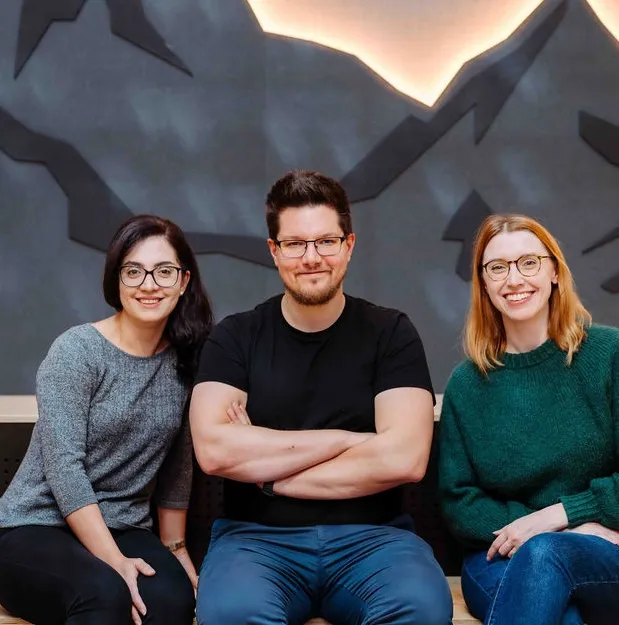Leadership Thoughts: Mathis Boldt, VP Global Sales & Supply
Mathis has encountered many challenges in his career from scaling Booking.com as part of both the Sales and Strategic Partnerships teams in the early 2000s to growing GetYourGuide’s sales offices from 1 to 14 and expanding the team from a handful to nearly a hundred.
.avif)
Key takeaways:
Mathis Boldt has been working in the online travel industry for nearly two decades and in this time has gone from leading small local teams to several hundred people across more than a dozen global offices. Now as VP Global Sales & Supply at GetYourGuide, he currently oversees our entire Sales and Content functions leading over 70 people. We sat down to discuss his leadership style and his advice for those ambitious to take the next step in their career.
{{Divider}}
An E-commerce Veteran
Mathis has encountered many challenges in his career from scaling Booking.com as part of both the Sales and Strategic Partnerships teams in the early 2000s to growing GetYourGuide’s sales offices from 1 to 14 and expanding the team from a handful to nearly a hundred. Despite all of these challenges, one thing he always prioritized was being a strong leader for his team and promoting their growth.
An e-commerce veteran, Mathis had his first touchpoint with travel tech during his studies in 1999 at a small start-up. Upon graduating, he took a detour from travel and started working as a consultant before joining Booking.com in early 2005.
“[At Booking.com] I started out as Area Manager for Germany and then became Managing Director. I worked in this type of role for 8 years and grew the region to more than 10 offices and a team of several hundred people. I then decided to pivot, relocating to Booking’s headquarters in Amsterdam to take on a global role overseeing strategic partnerships. Working in Sales meant I had a strong understanding of the supply side, making sure we had a good inventory, good availability, and good coverage everywhere, but I was lacking on the demand side. I took the Strategic Partnerships role because it would help me strengthen my understanding of demand by focusing primarily on growth initiatives for the company to increase customer access and awareness. With this in mind, one of my key pieces of advice for those looking to grow is to look into different departments or roles with different required skill sets that will make you more well-rounded.”
Become the Captain
When you are looking to grow to an executive level in a discipline, expertise in only one area of the business doesn’t prepare you with all of the knowledge you will need to be successful in a constantly changing market.
“I often use offshore sailing races as metaphor of what it means to run a successful business and lead teams. When you want to become the captain, you are not required to be a specialist in every position on the ship, but you should have a solid understanding of what skills you require in each of the positions to win. If you have no clue what a Bowman does and how this role contributes to the team, you might as well not even start the race.”
Ask yourself if you have a holistic understanding of how the business works and, if there is an area missing, look for opportunities that will help fill in the gaps.
And while this type of learning can take place in a training, Mathis argues that trainings should only make up about 10% of your overall learning plan. Instead, dedicate yourself to learning on the job and getting to know the business inside and out, even if this means taking on projects that feel out of your depth.
“Your career progresses by focusing on the business and learning what is required to be successful in the business as opposed to sitting in a training room and listening to other people tell you how you should do things. You learn by doing the job, throwing yourself in cold water, challenging yourself every day, trying new things, and pushing your limits. Try to see failures as something positive which bring you further on your journey. Really it’s the unpleasant stuff that will make you grow the fastest.”
You Will Have Weaknesses
Teamwork has also been crucial to Mathis’ development and he stresses the importance of soliciting feedback from teammates to ensure you’re growing in the right direction.
“You can’t really be successful without a team, so being able to work with the right people who can support you in your vision is critical. There’s not one person from whom you learn everything. You need to understand the strengths of each individual team member and what they do particularly well and see if that’s something you could use to be successful.”
This requires a good dose of self-awareness, a skill to be developed in and of itself, which leads us to his final piece of advice: know your strengths and weaknesses. However, this is easier said than done since it can be challenging to see your own strengths. It helps to reflect on your own values and ask people you trust for help and advice.
“Self-reflection is key for personal and professional development. It’s critical you understand what areas you excel in and what areas aren’t your thing; it’s expected that you will have weaknesses. Remember, strengths can have pitfalls and weaknesses can have hidden benefits. Being able to focus on details might make you very successful in some roles, but probably not as successful in roles where a big picture view is required. Similarly, being impatient can be seen as a positive in a high-pace environment, but might not come in handy if you want to become a clockmaker or surgeon.”
Rise to the Occasion
His advice for those looking to grow in their careers reflects his overall philosophy on leadership.
“I don’t expect anything from my team that I wouldn’t do myself. I involve myself wherever I feel like I can add value to my team. Whenever they ask me to make myself available, I will be there, but I can be hands-off too. I believe in empowerment and a trust culture.”
Building this trust with new employees can be difficult, especially when you can only meet with your direct reports through a video conference in wildly different time zones. But for Mathis, building trust starts in the hiring process and continues from there.
“When I interview people, I’m really trying to understand the person sitting in front of me. I want to understand their personality, their push, and pull factors. In short, who is this person? Making this effort is the first part of building trust, and I am as open as I expect my counterpart to be. I allow every question in an interview and I try to answer every question as honestly as possible.”
He empowers others by giving them the opportunity to rise to the occasion, even if they don’t think they’re ready.
“Some people don’t know where their strengths are or how much potential they have, but when I know someone really has the potential to grow with the business or can even accelerate and grow faster than the business, then I take the risks. By giving them this opportunity and investing in their potential, they will grow quickly into their new role and beyond.”
This approach has proved successful for Mathis and aligns with his values. After all, when asked about his proudest moment, his answer is quick:
“I am proud when I see people achieving things they’d never thought they could achieve before.”


.jpg)



